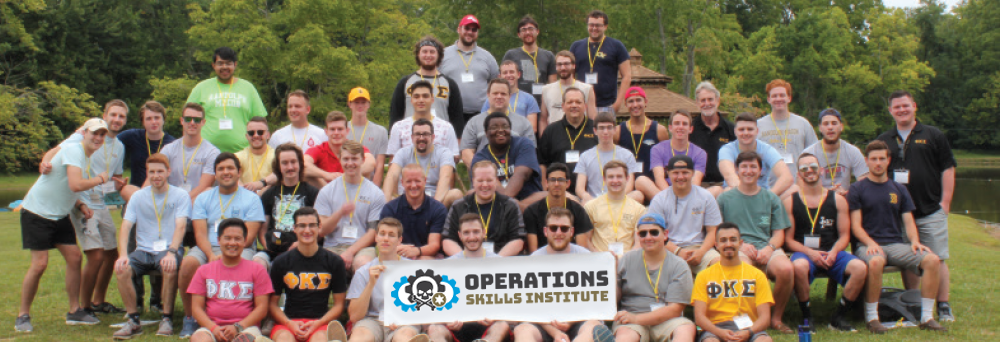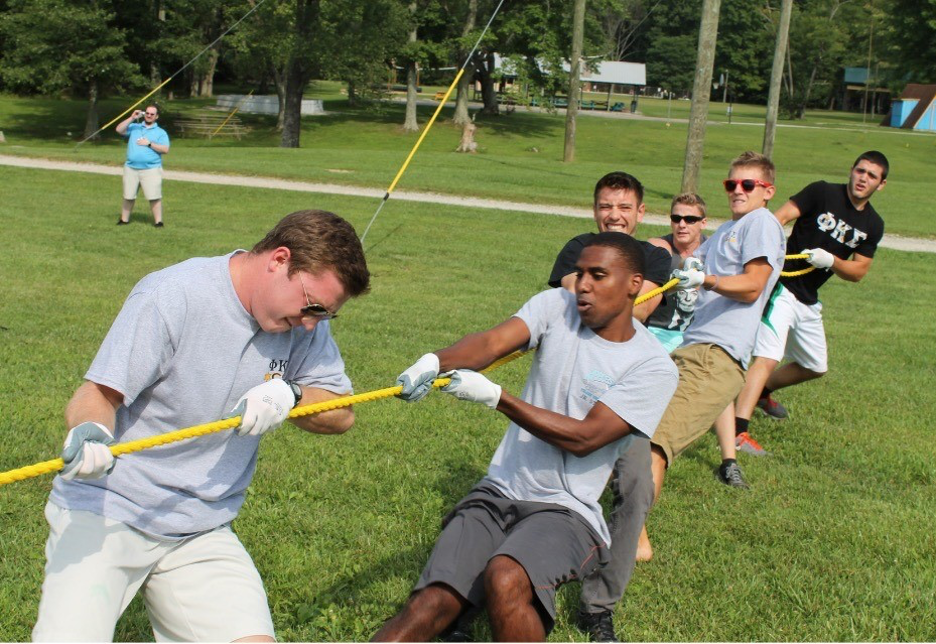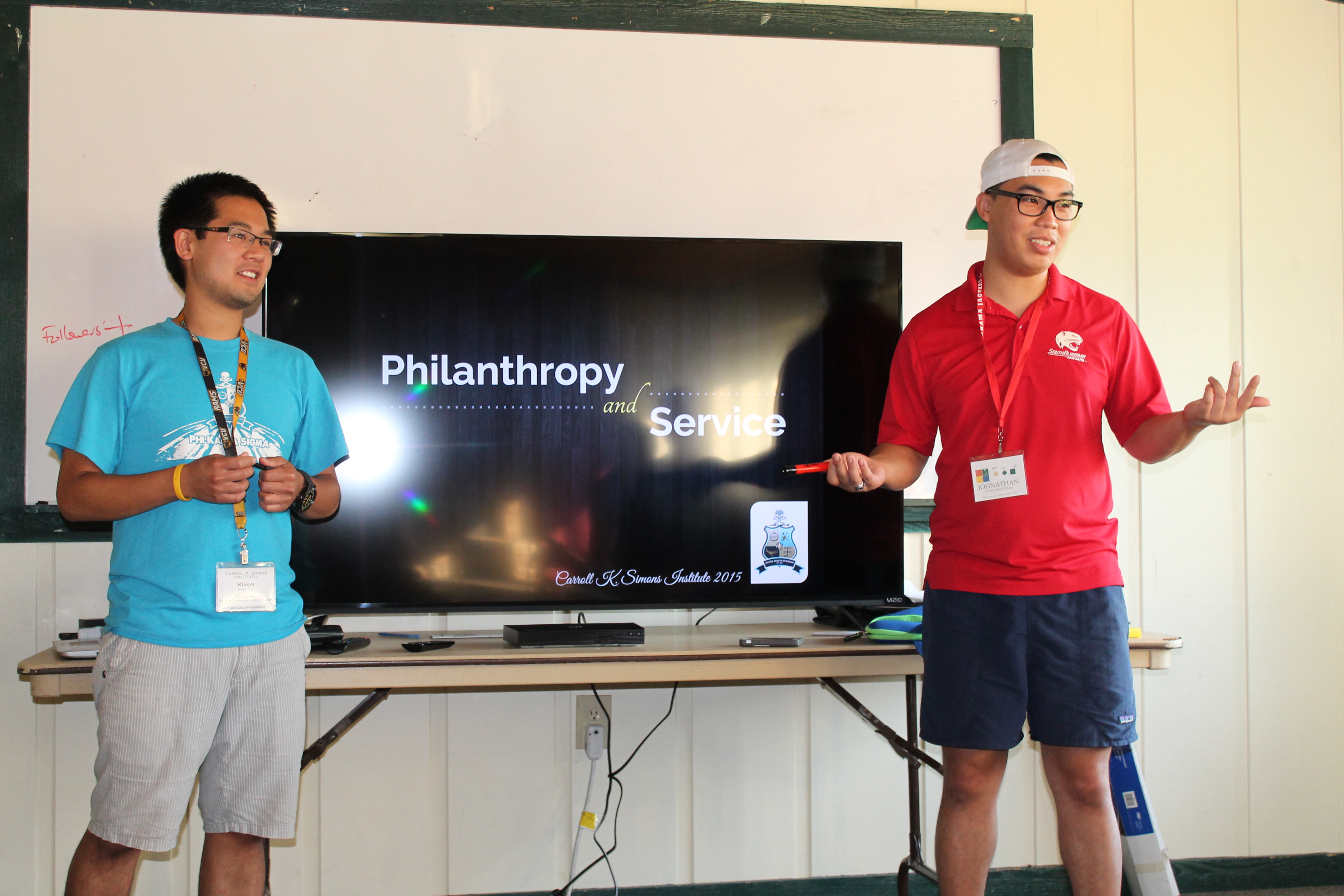

The Operations Skills Institute (OSI) is a weekend-long institute focused on providing advanced training for chapter officers. The weekend event is modeled around best practices of a chapter retreat. Centralized at an outdoor education center, OSI utilizes both large group seminar sessions, as well as competitive small group activities.
This method allows participants to share chapter practices, while empowering brotherly rivalry. Each year, leaders from our chapters gather to learn the operational skills that create positive outcomes within their respective chapters. Throughout OSI, participants will have the opportunity to explore, define, and enhance their managerial skills benefiting both themselves and those they lead.
Phi Kappa Sigma’s Doctrine of Excellence places focus on providing a “breadth of training for its members.” This commitment promises our members the support and education to grow as individuals and as a strong, functioning chapter on their campus.
 The Operations Skills Institute (OSI) is Phi Kappa Sigma’s newest program, which went through a curriculum change and focus from our previous summer program, the Carroll K. Simons Institute (CSI). The institute’s focus is to provide the time and space for officers to strengthen chapter operations, chapter management, and leadership skills. This program calls upon Phi Kappa Sigma staff and volunteers to lead group sessions on a variety of topics.
The Operations Skills Institute (OSI) is Phi Kappa Sigma’s newest program, which went through a curriculum change and focus from our previous summer program, the Carroll K. Simons Institute (CSI). The institute’s focus is to provide the time and space for officers to strengthen chapter operations, chapter management, and leadership skills. This program calls upon Phi Kappa Sigma staff and volunteers to lead group sessions on a variety of topics.
The intent of the institute is to provide training for new officers, but is also open to brothers who want to share and learn best chapter practices.

The Operations Skills Institute helps participants advance their knowledge in the following:
Attendees are divided into teams that compete in a series of different events over the weekend. Each competition is designed to challenge the groups, with an emphasis placed on Bruce Tuckman’s Stages of Group Development. This provides participants with the opportunity to develop an experiential understanding of group development process. At the end of each activity, facilitators lead their assigned team in discussion based on member and facilitator observation, evaluating the team’s performance using Tuckman’s model.
Between competitions, attendees participate in large group seminars on educational topics designed and led by the institute facilitators. Specific sessions can vary based on current needs, depending on an overall survey of attendees. Some session highlights include:

Operational Skills Institute should serve as a model on how to run individual chapter retreats. The outcomes of OSI should also reflect Phi Kappa Sigma’s vision of the “development of the fraternity and its members” through the refinement of managerial skills and operational understanding in regards to the individual chapters and the greater organization.
Participants will:


“Going to the institute was a transformative experience for me that gave me the confidence that I needed to lead my chapter in the right direction. While there, not only did the institute revitalize my faith that my chapter could improve but it also allowed me to meet other people that were struggling with similar issues and learn how they overcame said problems. the institute is what helped me be the effective leader that my chapter needed.”
- Kevin Adams Tau Chapter Randolph-Macon ‘18